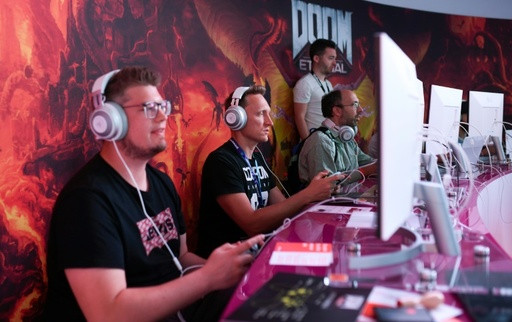Google Stadia negative latency claims draw criticism from gamers
Gamers are taking to social media to talk about Google's claims about how negative latency will remove lag on the Stadia.
Amidst concerns regarding how varying internet speeds can affect its performance, Google reveals more about Stadia. According to one of the engineers working on the game streaming service, the platform will rely on what is called "negative latency." With this system in place, the gameplay will supposedly be seamless. However, it appears that gamers have something to say about this bold claim. Even experts are weighing in on the subject and arguing why the company is relying on this type of solution.
Some players are pointing out that the term used by Google denotes something unappealing. Input delay is already a big deal even on consoles and gaming PCs, which run the software locally. Sending and receiving data from servers will impact response time and the Stadia is not exempt from the rule. Therefore, what the company's developers are proposing is to use machine learning along with a new algorithm to compensate for lag.
Of course there's there's gonna be some prediction in a networked system. There kinda has to be. I'm not sure I'm 100% on board with calling it negative latency yet, though.
— Dennis (@dennisRamirez) October 11, 2019
Unfortunately, despite how Google tries to paint a pretty picture of Stadia, gamers are apparently not convinced. On social media, gamers are poking fun at the cloud gaming service and its so-called workaround. There are people making comparisons with other recent gaming-related announcements. For example, user Ku-Vastei expressed excitement over Sony's new controller and its features, while also asking for negative latency.
Genuinely excited for Adaptive triggers and Haptics now just throw in the Negative latency from Stadia 👀👀
— Ku-Vastei (@SighSohOn) October 11, 2019
The system works by using machine learning, a technology slowly making its way into more consumer products. The game runs on Stadia servers, while the AI analyses real-time data regarding the game. Before the player makes a move or presses a button, all possible actions available as of that in-game moment are pre-loaded on the user's end, VentureBeat reports. As the controller registers the input, the appropriate pre-loaded frame comes to life and happens on screen. This will be an ongoing process until the user exits the game.
I don't care if @googlestadia can predict at 100% accuracy. They can't erase the time it takes for the signal to get from me to them and for their predicted result to get from them to me. "Negative latency" = meaningless technobabble buzzwords
— BeyondTheGrave (@BeyondGrave) October 10, 2019
Most of the other comments are reportedly accusing Google of trying to make up a new buzzword for the sake of marketing the Stadia. Meanwhile, the rest seem to be complaining about how negative latency sounds like the machine is playing the games for them. It remains to be seen how the game streaming service performs with multiple subscribers accessing the servers at the same time.

© Copyright IBTimes 2025. All rights reserved.





















